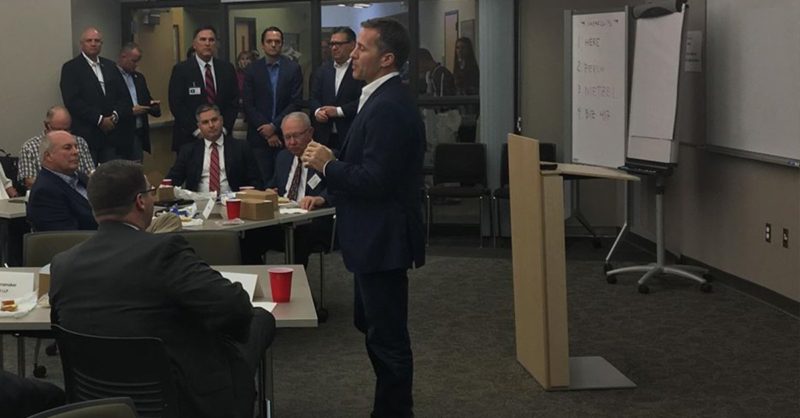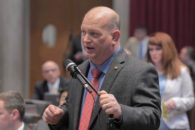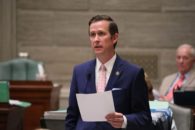JEFFERSON CITY, Mo. – After 80 days of work, five roundtables, and four surveys, the Governor’s Innovation Task Force has submitted their final report to Governor Eric Greitens.
Members of the task force’s steering committee presented the report and their findings to Governor at the Center of Emerging Technologies in St. Louis on Tuesday.
The final report, which was conducted with the help of the Hawthorn Foundation, outlines ways in which the state can work to encourage and support entrepreneurship, innovation, technology and job growth.
The task force was given the duty of evaluating where the Show-Me State stands and then identify the options the state has in their mission to help businesses and innovators succeed in Missouri. To do this, the Hawthorn Foundation provided support to a 33-member steering committee that featured men and women from academia, business, government, and entrepreneurial backgrounds who all volunteered their time to complete their work by the end of August.
The Task Force’s final summary report was completed on August 31, and provides a detailed, fact-based assessment of where Missouri innovation stands compared to other states, and presents a series of options to consider to help the entrepreneurs and startups by providing better access to an improved business environment, talent, ideas, capital and credit, as well as working to provide a better brand for the state.
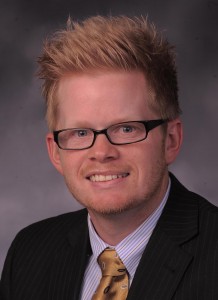
“Missouri is primed and ready to grow in innovation and entrepreneurship,” Sen. Caleb Rowden, R-Columbia, said. “It is time for us to take a serious look at what the state’s role is in supporting this sector of our economy.”
According to Bloomberg’s 2016 U.S. State Innovation Index, Missouri’s score of 41 on a scale of 1 to 100 puts the Show-Me State near the middle of the pack in the 50 states, ranking 32nd overall. Nearly every state surrounding Missouri falls in the mid-tier, except Illinois, which fares higher.
In terms of science and technology, Missouri has also continuously landed in the middle tier, most recently ranking 28th in 2016 nationwide.
Part of the reason that the state could be falling behind in some aspects could be attributed to fragmentation across the state, with regional priorities taking precedence over those of the state. As one committee member stated, “people here think of themselves first as Kansas City residents, St. Louisans, Springfielders, Columbians, etc. There is also a big rural-urban divide. The last person who called themselves a Missourian was probably Samuel Clemens…and that’s only because he was from Hannibal!”
“In 2017, we’re ranked number 10 in the country in new business creation. But when you break it down across the State, it’s very uneven,” Wendy Guillies, President and CEO Kauffman Foundation, said. “St. Louis and Kansas City are number 26 and number 15, but the small communities and rural areas are facing big challenges.”
Another issue that the steering committee pointed out is the public opinion of the state, which seems to be negative, due to recent events over the past few years, with the report including headlines from the events in Ferguson or the rankings from Neighborhoodscout.com’s list of “most dangerous places to live in the U.S.” St. Louis ranks number six on the list, while Kansas City lands at 28. Springfield follows closely behind at 31.
A report from USA Today also shows that more than 63 percent of college students leave Missouri after graduation. Missouri is number 7 on that list.
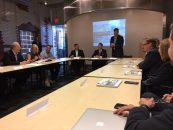
To address all of these issues, the Task Force outlined several options to fix five key areas of need: environment, ideas, talent, capital and credit availability, and branding. These are the recommendations for each area:
ENVIRONMENT
- Eliminate red tape and reduce regulation: make Missouri easiest place to start a business
- Create Entrepreneurship Mentor Network
- Establish incubator association
- Develop a sister state innovation relationship
- Institutionalize innovation in state government
- Establish Missouri Rural Broadband Office
- Design international trade programs to help startups reach global export markets
- Increase entrepreneurial events in smaller cities
- Reform non-compete laws
- Pursue additional regulatory reform
IDEAS
- Incentivize collaboration among universities and industry research entities
- Commit to “moonshot” project
- Prioritize proof of concept centers and matching grants
- Establish rural technology incubation centers
TALENT
- Launch “come home” campaign to attract state’s diaspora back to help Missouri
- Create innovative skill-based/ technical/real world degree programs outside of or accelerating 4-year college
- Adapt K-12 curriculum to improve technical skills training
- Focus on attracting and retaining Millennials/GenZ
- Encourage and educate people to view entrepreneurship as a valid career choice
- Target aid for students pursuing technology and science degrees
CAPITAL & CREDIT AVAILABILITY
- Continue current MTC model
- Decentralize management of preventure risk capital to private nonprofit organizations
- Create Missouri Innovation Fund
- Create comprehensive online funding resources for startups
- Incentivize non-dilutive grant matching
- Tax Policy: R&D Tax Credits; “IP Box”; Income Tax Holiday; Capital Gains Deduction; Angel Tax Credit; Philanthropic Tax Credits; Simple, Fair, and Low Tax System; Accelerated depreciation; Transferable net operating losses
- Develop micro-finance programs to support underserved urban and rural populations
BRANDING
- Pick 1-3 industry sectors and focus on being nationwide or global – not regional – leader
- Launch marketing initiative promoting innovation storylines to national audience
- Make big state investment in 1 sector to signal commitment
- Solicit involvement from Venture Capitalists and investors from around the world
- Hold large innovation events focused on drawing groups of external stakeholders
- Support regional branding initiatives
“There is no single solution or silver bullet when it comes to promoting entrepreneurship in Missouri. A thriving entrepreneurial ecosystem depends on the availability of capital and credit, access to talent, and a favorable regulatory environment,” Andrew Smith, Vice President of Entrepreneurship and Innovation, St. Louis Regional Chamber of Commerce, said. “The Task Force’s report is comprehensive in its scope and bold in its vision, and the process over the summer was both rigorous and highly collaborative.”
“Governor Greitens’ Innovation Task Force has been a model for how to pull together diverse constituencies in a truly collaborative approach. This shows the level of rigor and detail in the final report, which sets a new national standard for joint public-private sector problem-solving,” St. Louis Regional Chamber President & CEO Joe Reagan said. “Innovation, commercialization, and entrepreneurship are essential to creating high-paying jobs across Missouri. We can’t rely on the economy of the past nor even the momentum we have today. Tomorrow’s jobs are being created in our research labs, corporate innovation centers, shared workspaces and across kitchen tables. It will be up to public and private leaders to work together to support our innovators with funding and talent. It will also be essential to telling Missouri’s innovation story throughout the world.”
“I was very happy to be involved with the task force. The process produced several “out of the box” options to meet the Governor’s criteria of being bold, actionable, and affordable,” Bill Turpin, President and CEO of Missouri Innovation Center said. “I believe these options could significantly improve the entrepreneurial ecosystem in Missouri.”
To read the full 113-page report, click here.
Benjamin Peters was a reporter for The Missouri Times and Missouri Times Magazine and also produced the #MoLeg Podcast. He joined The Missouri Times in 2016 after working as a sports editor and TV news producer in mid-Missouri. Benjamin is a graduate of Missouri State University in Springfield.

